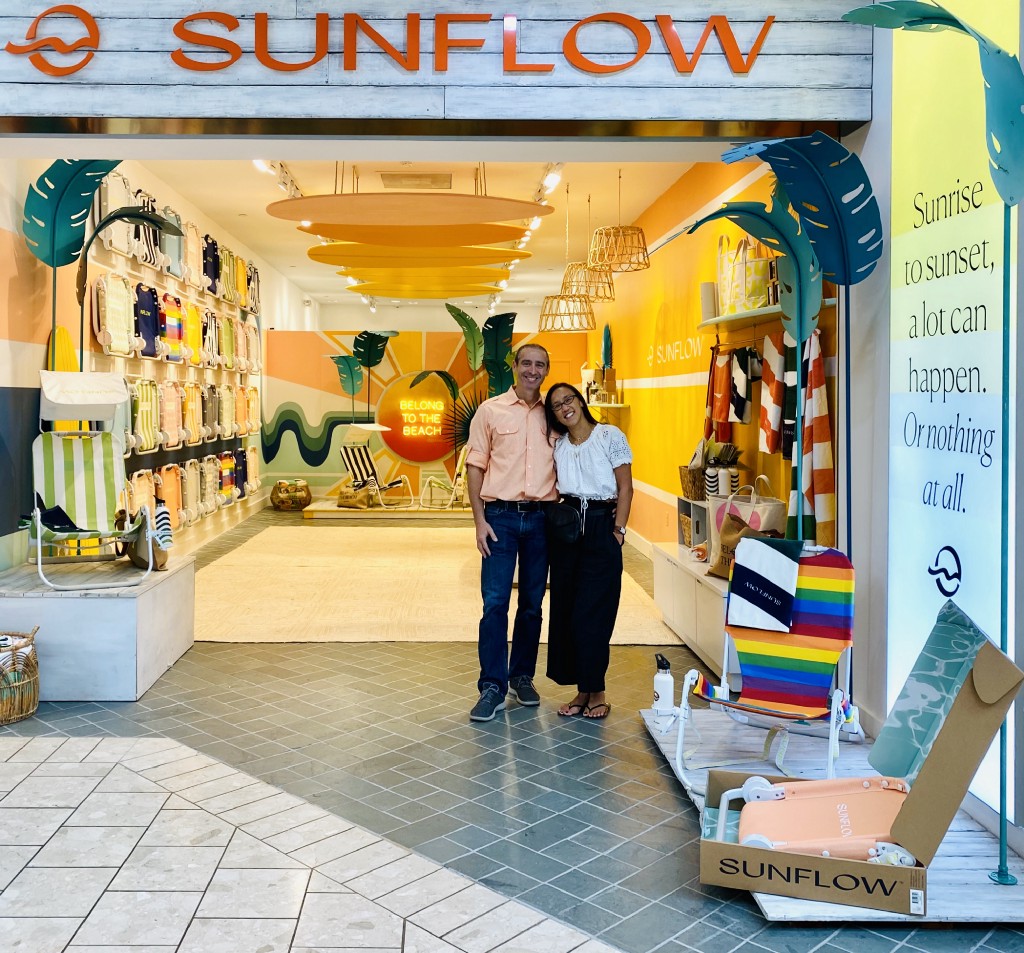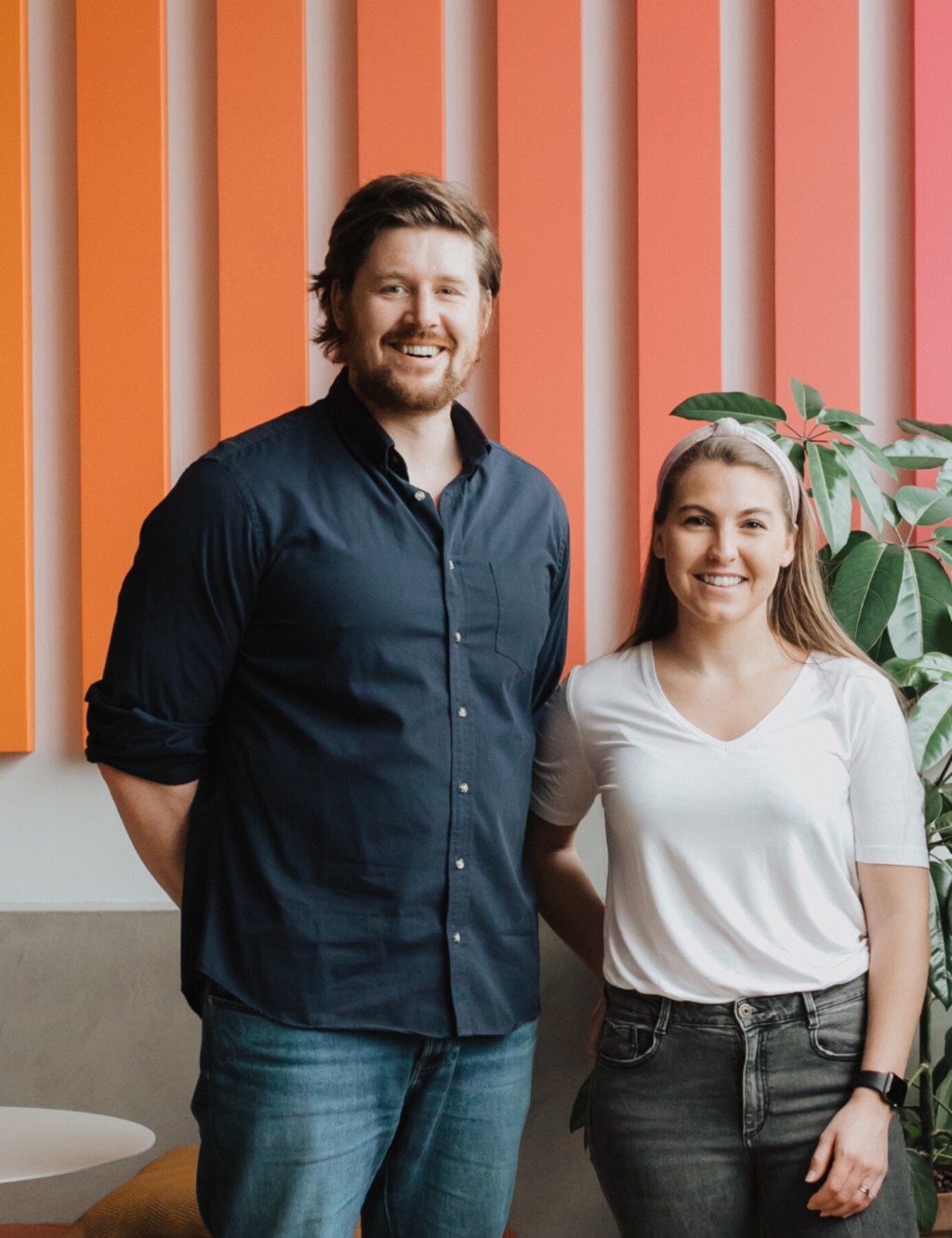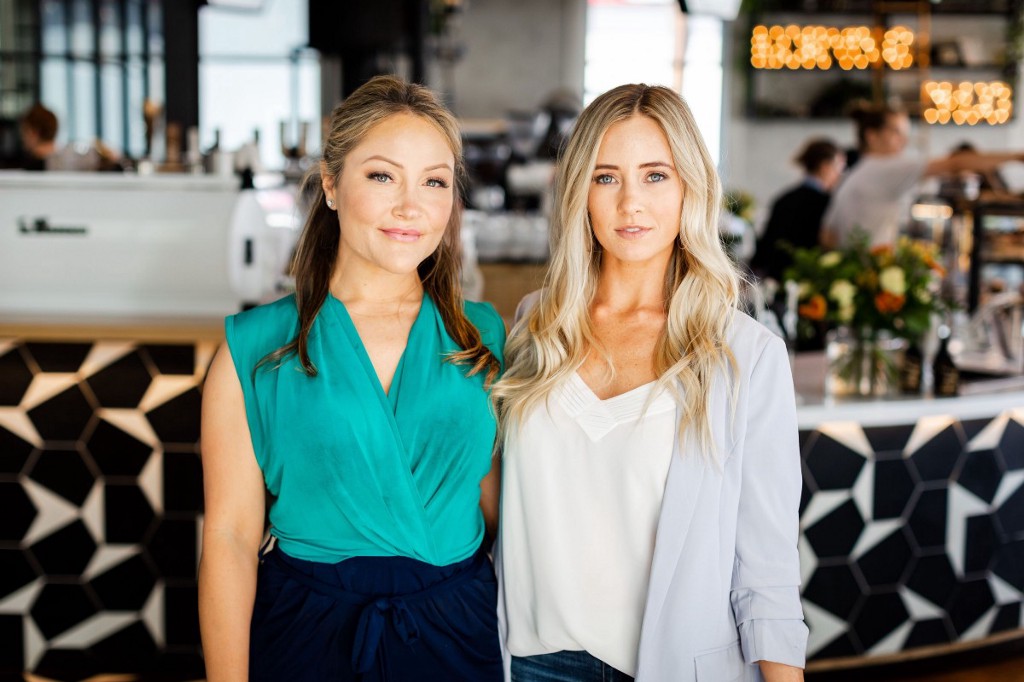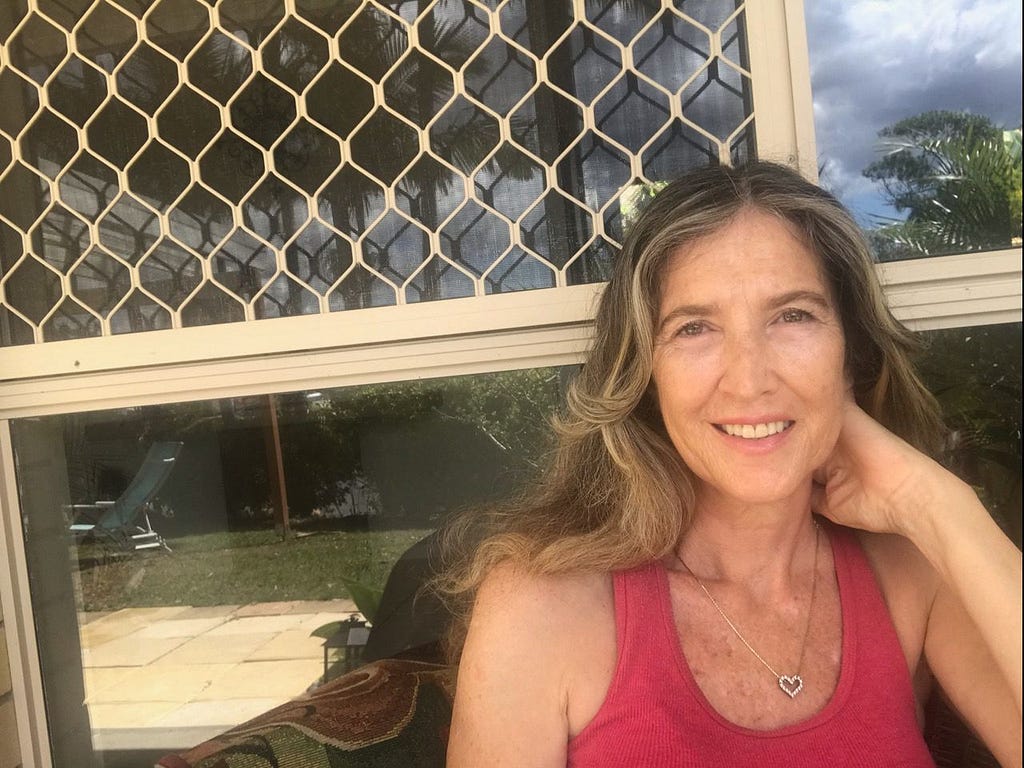
Greg — Make Time for your Relationship: Leslie and I always make time to celebrate our relationship and our love for each other. We have a weekly date night — whether we go to dinner, have some cocktails, or just sit in our pajamas by the fireplace watching our favorite show or movie. Also, after we were married, we started a tradition to honeymoon every year, not just the first year. Sometimes it is simply a weekend road-trip, and sometimes a more extravagant trip to what always seems like paradise.
Leslie — Be Adoring: Never stop expressing deep affection, love and admiration for each other. Greg still writes me love poems and sends me flowers. Often an unexpected big hug, kiss, or a smile is adoring.
As a part of our series about lessons from Thriving Power Couples, I had the pleasure of interviewing Leslie Hsu and Greg Besner.
Leslie Hsu is the co-founder and Chief Creative Officer of Sunflow, Inc. Three years ago, while relaxing on the beach with her family, Leslie had the vision to reinvent beach products creating more comfortable, beautiful, and thoughtful solutions. She envisioned SUNFLOW as a modern brand focused on both function and fashion. Just in time for Summer 2020, the SUNFLOW brand was unveiled. It features beautiful chairs at the center of the collection, as well as an assortment of complementary accessories to create a full outdoor solution.
Leslie’s design career was launched more than two decades ago when she joined the Calvin Klein design team. In 2000, Leslie started her own namesake handbag brand, Leslie Hsu New York, which sold in hundreds of stores around the world including Neiman Marcus, Henri Bendel, Fred Segal Melrose, Stanley Korshak, Intermix, and Takashimaya. Later she launched accessories collections for high profile brands such as UGG®, True Religion Brand Jeans®, and Jonathan Adler.
Leslie attended Penn State University and earned a BS in International Business. For 21 years she has been happily married to Greg Besner, the co-founder of SUNFLOW. They have two teenage daughters Willa and Lana, both of whom helped bring SUNFLOW to the world.
Greg Besner is the co-founder and CEO of Sunflow, Inc. The founder of four companies, Greg is a serial entrepreneur, as well as an adjunct professor at NYU Stern School of Business, and the author of The Culture Quotient: Ten Dimensions of a High-Performance Culture (Ideapress 2020). Greg started his career as a fashion executive completing the Macy’s Retail Executive Training Program, later becoming the United States Sales Manager for Giorgio Armani Fashion Corporation.
In 2018, Greg was ranked in USA Today as the eighth-best CEO in the United States among a pool of fifty thousand companies. He was also named the EY Entrepreneur Of The Year® in New Jersey in 2003. Greg is frequently published in business and leadership publications and podcasts, and is a keynote speaker at leadership conferences around the world on topics of business, culture, and the future of work.
Greg completed six years of the Harvard Business School Presidents’ Program in Leadership, as well as his MBA from the Wharton School of the University of Pennsylvania. He earned his BA from Rutgers University. Greg has been happily married to SUNFLOW co-founder Leslie Hsu for 21 years.
Thank you so much for doing this with us! Can you tell us a story about what brought you two to your respective career paths?
Leslie: When Greg and I were newlyweds, we always wondered what our life would look like at this point — after 22 years of marriage. When we met, I was a fabric designer at Calvin Klein Collection working on Fashion Avenue in Manhattan, and Greg had been running sales and marketing for Giorgio Armani USA. As we talked about having children, we also dreamed of being entrepreneurs together, constantly sharing so many crazy ideas. We dreamt of having a home-based business so that we could be with our family, but also have our careers. Soon after we were married, we both took the leap of faith, leaving our jobs to launch our first handbag company called Leslie Hsu New York®. Our plan was for me to use my fabric design experience and my sourcing contacts in Italy, France and NYC to create very unique and beautiful handbags, and then with Greg’s sales experience and connections, together we would market to high-end boutiques around the world. It worked! Neiman Marcus, Bloomingdales, Henri Bendel, Stanley Korshak and hundreds of amazing retailers around the world purchased our handbags, and our growing business took over our small West Village Manhattan apartment. As our business grew, so did our family and our home. Over the next few years, we moved to Short Hills, New Jersey and welcomed our daughters, Willa and Lana.
Next we licensed the UGG® and True Religion brands to exclusively launch their handbags just as these two brands were taking off. Our UGG® and True Religion handbags were an overnight success. Greg recalls that our sales that first year were 1,400% ahead of our projections (he’s the numbers guy). We quickly grew our team and raced to keep up with the global demand. It was exhilarating and we learned so much over the three years that we licensed these brands. Our daughters were always front and center in a stroller, or in our arms, every step of the way. Our dreams of balancing work and life had come true.
Flash forward to 2017. Our daughters are teenagers, and our family’s happy place is most definitely the beach. Our beach days, beach weekends, and beach vacations have forever created our most cherished memories — from belly laughs with our friends, to strolling along the shoreline holding hands with my husband, to just playing in the sand with our girls. This is also where the idea of SUNFLOW came to be.
During one of these family trips, our family packed up for a short walk from our beachside rental to find our spot on the beach for the day. The process of loading up our gear for the day and dragging it to the beach was nothing short of a comical parody. It was truly laughable how cumbersome and clumsy this seemingly simple chore was. I kept thinking, why aren’t there friendlier beach accessories; easier to carry, more comfortable, more thoughtful and much, much more beautiful? After unpacking our beach chairs, umbrella, towels and other assorted necessities, I collapsed into my uncomfortable and not-very-pretty chair and thought, there has to be a better way! I turned to Greg and said “Someone should design more comfortable, beautiful, and thoughtful beach products.” Greg looked around and said to me, “We should design more comfortable, beautiful beach products.” And voila! SUNFLOW was born. Actually, it took almost three years to reinvent, redesign, and produce and launch SUNFLOW, but the vision is now a reality, and we are so thrilled by the response.
Can you share the most interesting story that happened to you since you two got married?
Greg: On our daughter Willa’s fourth birthday, she was unexpectedly diagnosed with Type One Diabetes. Our sick daughter took priority over everything else, so our life was turned upside down. We learned everything that we could about this life-changing disease to keep our daughter alive and safe. It was a very emotional time, but 15 years later, Willa is in college and manages her own health amazingly well. This experience inspired us to help other families impacted by Type One Diabetes.
Nine years ago we founded the Willa’s Wish Foundation with the mission to raise and donate $1 million to help other families dealing with children that have the onset of Type One Diabetes and to fund research to help develop a cure. Willa’s Wish has raised almost $900,000 thanks to the generosity of our family and friends. We are optimistic that a cure will be developed for the millions currently suffering with this disease, and for those who will be diagnosed with this life-threatening disease.
Can you share a story about the funniest mistake you made when you were first starting? Can you tell us what lesson you learned from that?
Leslie:
Last year we were so excited to unveil our first SUNFLOW chair prototypes to our best friends, so we brought some to the beach to share. There is nothing more embarrassing than your best friend sitting on your top secret prototype and watching the chair break as they fall to the ground with a thump! Lesson learned… test, test, and test again.
What do you think makes your company stand out? Can you share a story?
Greg:
Our goal with SUNFLOW is to create thoughtful outdoor solutions. We want people to have the same “aha moment” that Leslie and I had when they go to their own happy place. When they use SUNFLOW, we hope they feel it’s easier to carry, more comfortable, more thoughtful, and much more beautiful. We hope to make people smile.
Last year we opened two pop-up stores, one in the East Hampton Village, New York, and one at the Mall at Short Hills, New Jersey. Nothing is more satisfying than to watch people gasp with awe as we push the button on the top of our chair to expand and retract it from lounge size to backpack size. It’s such a thrill to see customers smile as they imagine being in their happy place using SUNFLOW.
Are you working on any exciting new projects now? How do you think that will help people?
Leslie:
I’m very excited to be designing additional outdoor solutions that will be announced this summer, so stay tuned on those! We hope to solve more customer problems and bring even more smiles to the world.
What advice would you give to other CEOs or founders to help their employees to thrive?
Leslie:
Greg literally wrote the book on this topic. His book, titled The Culture Quotient: Ten Dimensions of a High-Performance Culture, was published November 2020. Greg always highlights the importance of aligning company culture with company strategy, and to share and celebrate the mission and values. It’s important for a company to use its mission as its north star, and their core values to lead the way there.
How do you define “Leadership”?
Greg:
Leadership is leading by example, inspiring success and team building, and above all… always being humble.
None of us are able to achieve success without some help along the way. Is there a particular person who you are grateful towards who helped get you to where you are? Can you share a story about that?
Greg:
Several friends and mentors have had a profound impact on my life, in particular, Tony Hsieh. Eighteen years ago, when Leslie and I were still newlyweds with two new baby daughters, I founded my first startup company. Leslie and I had no savings, so we used a home equity loan to help fund my business. We had a beautiful young family, but no financial security and no safety net. I also had no mentors to help guide my way, and at that moment Tony and I met through a mutual friend. I had no idea the impact that his friendship would have on me. For the next 18 years our friendship grew stronger and stronger, always showing up big for each other’s important life events. Tony’s encouragement and feedback over the years gave me great confidence and conviction along my journey. Fortunately my initial business and subsequent startups were successful, but Tony tragically passed away last year. I’ll miss his friendship and mentorship very much.
How have you used your success to bring goodness to the world?
Leslie:
Greg and I feel that everyone deserves downtime, which we equate to spending time in your happy place with family and friends. Over the past year, due to the COVID-19 pandemic, most of us have stayed at home unable to visit the people and places we love. It has brought us joy to see that our customers are mailing SUNFLOW to their closest family and friends, encouraging their loved ones to enjoy downtime outside. We hope that SUNFLOW is part of making people smile, laugh and love.
What are the “5 Things You Need To Thrive As A Couple”? Please share a story or example for each.
Greg:
1.) Make Time for your Relationship: Leslie and I always make time to celebrate our relationship and our love for each other. We have a weekly date night — whether we go to dinner, have some cocktails, or just sit in our pajamas by the fireplace watching our favorite show or movie. Also, after we were married, we started a tradition to honeymoon every year, not just the first year. Sometimes it is simply a weekend road-trip, and sometimes a more extravagant trip to what always seems like paradise.
Leslie:
2.) Be Adoring: Never stop expressing deep affection, love and admiration for each other. Greg still writes me love poems and sends me flowers. Often an unexpected big hug, kiss, or a smile is adoring.
Greg:
3.) Be Patient: A relationship only works when you celebrate your partner’s differences as much as what you have in common.
Greg:
4.) Be Authentic: It’s important to be able to be your true self with your partner. Living an authentic life is where what you say, what you do, and what you think are all aligned.
Leslie:
5.) Always Be Thoughtful: Greg and I have been married for 22 years, but he still opens the car door for me. I pride myself on being an independent woman, but I love that Greg is even more thoughtful today than he was 23 years ago on our first date. A few weeks ago. Greg was away. While he was traveling I completed a full makeover of his home office. He was so excited and surprised when he returned. It took me forever, hours of painting and building furniture in PJ’s… but it was more than worth it to see his face when he saw it. Be thoughtful and do things that show your heart.
You are people of great influence. If you could inspire a movement that would bring the most amount of good to the most amount of people, what would that be? You never know what your idea can trigger. 🙂
Greg:
A few months ago Leslie and I lost our very close friend, Tony Hsieh, the author of Delivering Happiness and longtime CEO of Zappos.com. Tony inspired us because he always looked for ways to give to others. When I visited Tony, I would always see hundreds of post-it notes on the walls of his home, with each post-it listing someone’s life-dream that he was helping to come true. Tony’s example inspired us to always look for ways to give to our family, to our friends, and to our community. We would love to inspire a movement in which everyone gives more than they take. As Martin Luther King Jr. once said “Life’s most persistent and urgent question is, ‘What are you doing for others?”
Can you please give us your favorite “Life Lesson Quote”? Can you share how that was relevant to you in your life?
Leslie:
“Be happy. Not because everything is good, but because you can see the good side of everything”. — Author unknown.
Greg and I try to live life by this philosophy, always trying to see the good in the people around us, and the good in the world. We find that positive energy brings us fulfilment.
We are very blessed that some of the biggest names in Business, VC funding, Sports, and Entertainment read this column. Is there a person in the world, or in the US with whom you would love to have a private breakfast or lunch with, and why? He or she might just see this if we tag them 🙂
Leslie:
Michelle Obama inspires me with her words, actions, and grace.
Amanda Gorman inspires me and gives me hope that our next generation will say and do amazing things to make our world a better place.
How can our readers follow your work online?
Subscribe to our Website: getsunflow.com
Follow us at Facebook: @getsunflow
Follow us on Instagram: @getsunflow
Lessons from a Thriving Power Couple, With Leslie Hsu and Greg Besner of Sunflow was originally published in Authority Magazine on Medium, where people are continuing the conversation by highlighting and responding to this story.















